Sports
‘My son could be greater than Lionel Messi’: The making of Lamine Yamal
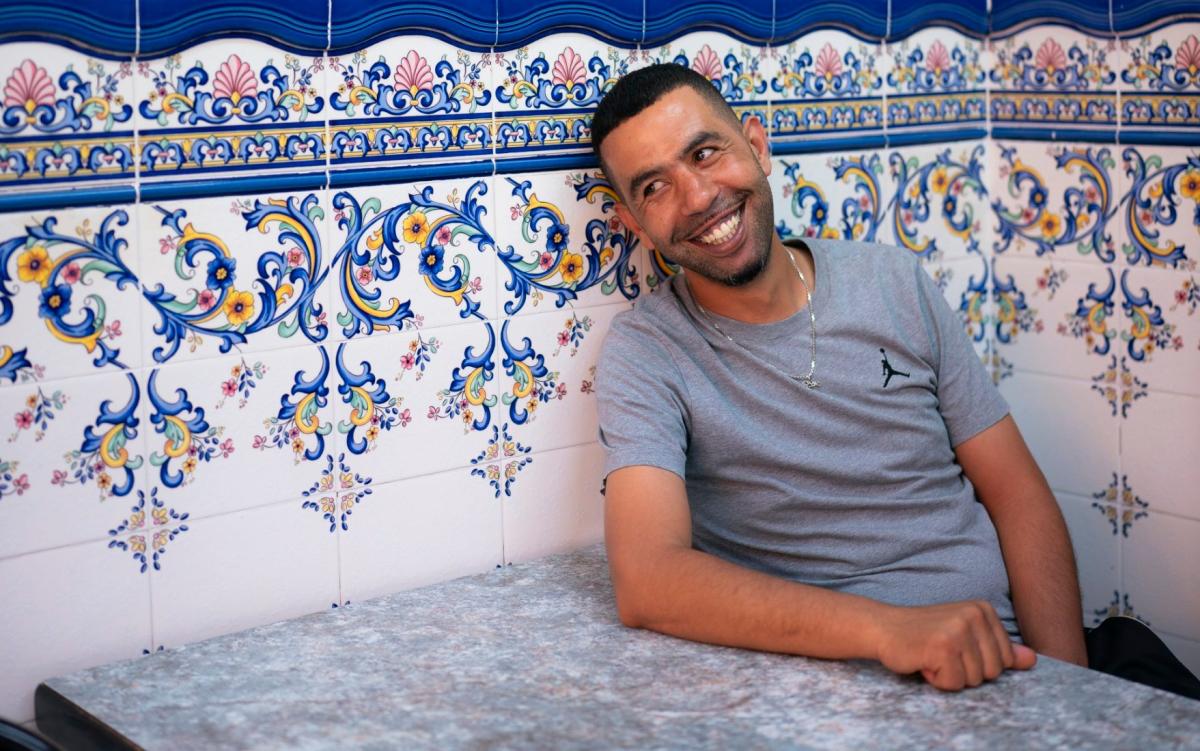


Grinning from ear to ear, Lamine Yamal’s father was quietly confident his son will inflict maximum damage on England in the European Championship final.
Mounir Nasraoui was sipping coffee with friends in his favourite bar in Rocafonda, just outside Barcelona, two days before the match in Berlin.
“We are going to win. We will beat England. If I am right, you can pay for drinks for everyone in this bar. If I am wrong, I will. But I won’t be. You’ll see,” he told Telegraph Sport in Bar El Cordobés.
Rocafonda is a working-class neighbourhood where Yamal grew up and the name of the bar is apt as one of Spain’s most famous matadors, El Cordobés, was raised in abject poverty. Yamal’s story is not too different.
“You cannot imagine how proud I am of my son. I always knew that he would achieve what he has. I had total faith. And I have faith that he could go all the way and be greater than Messi,” Nasraoui says.
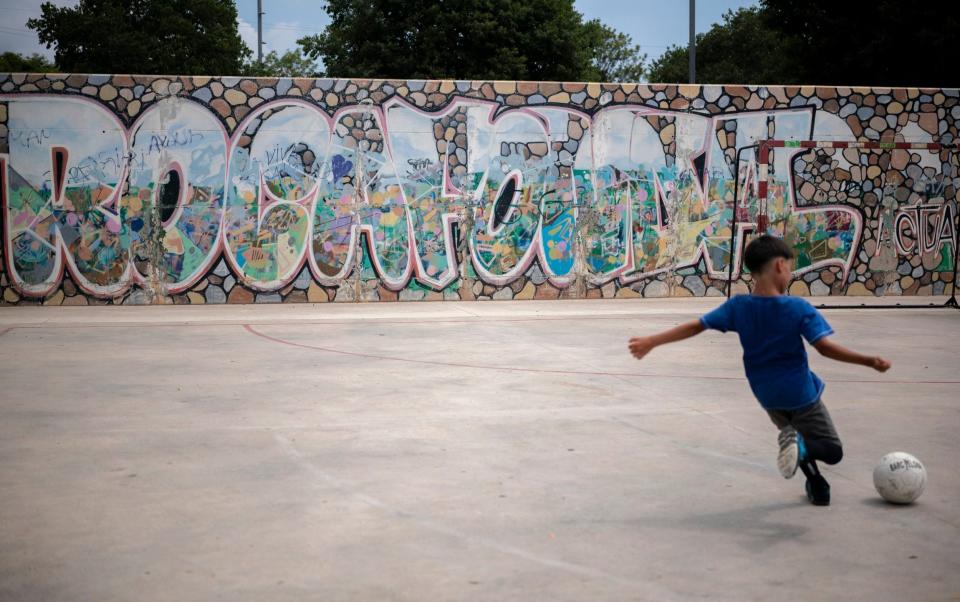

He took a red-eye flight on Saturday morning from Barcelona to Berlin to be with his son on his 17th birthday, a day before Spain’s clash with England.
The 38-year-old is dining out on his son’s considerable talents after Yamal scored the goal of the tournament against France on Tuesday.
And though he is from Morocco, his loyalties are not divided. “I can never forget my own country. But my son was born and bred in Spain and that is his country,” he explains.
By chance, the winger’s father recently published a photograph on social media of his son that was taken almost 17 years ago. In it, a baby Yamal is cradled by Lionel Messi. He wrote on social media: “The beginning of two legends.”
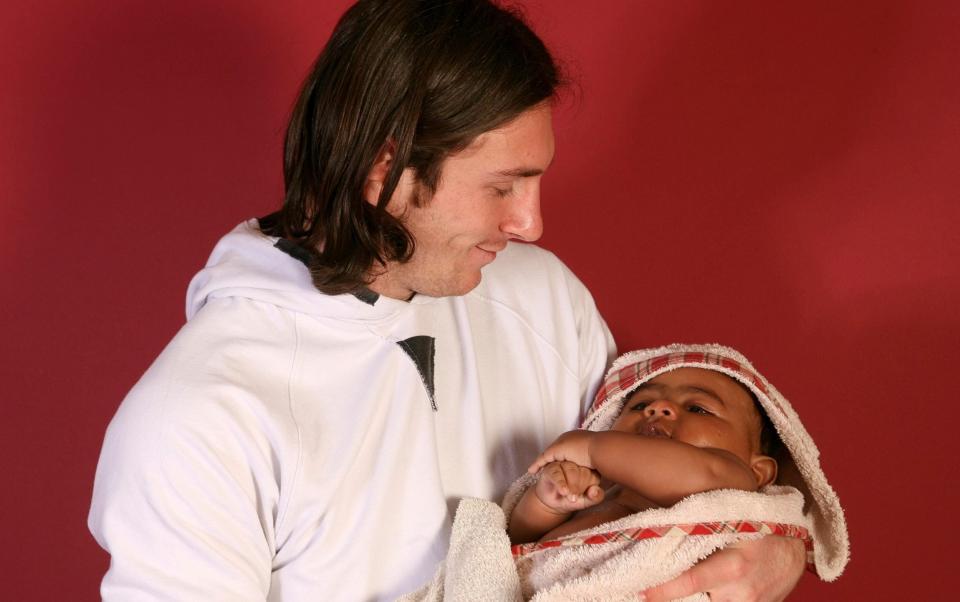

The Argentina player was 20 at the time and had taken part in a Unicef campaign with FC Barcelona. Yamal was five months old when his parents entered him into a raffle and he was paired with Messi. Yamal’s smiles won over a nervous Messi at the photoshoot.
Friends say Yamal owes his precocious talents to his baptism of fire playing in the tough streets of Rocafonda .
“Lamine learned to play so well because he started playing with bigger kids, harder, tougher kids from all backgrounds when he was so young. There are children here from Morocco, Africa all over,” says Mohammed Ben Serghine, a family friend.
‘I think if I play hard enough, I could be like him’
Rocafonda is in Mataró, a dowdy industrial town about 50 miles north of Barcelona. The poor neighbourhood would be unremarkable, like so many others, were it not for the Spain player.
But on the walls around the neighbourhood is dawbed the number 304. It could be another piece of graffiti except for one thing.
When Yamal scored that wonderful goal against France, he wheeled away to celebrate and made the sign three, zero, four with his fingers. It was a reference to Rocafonda’s post code which, in full, reads 08304.
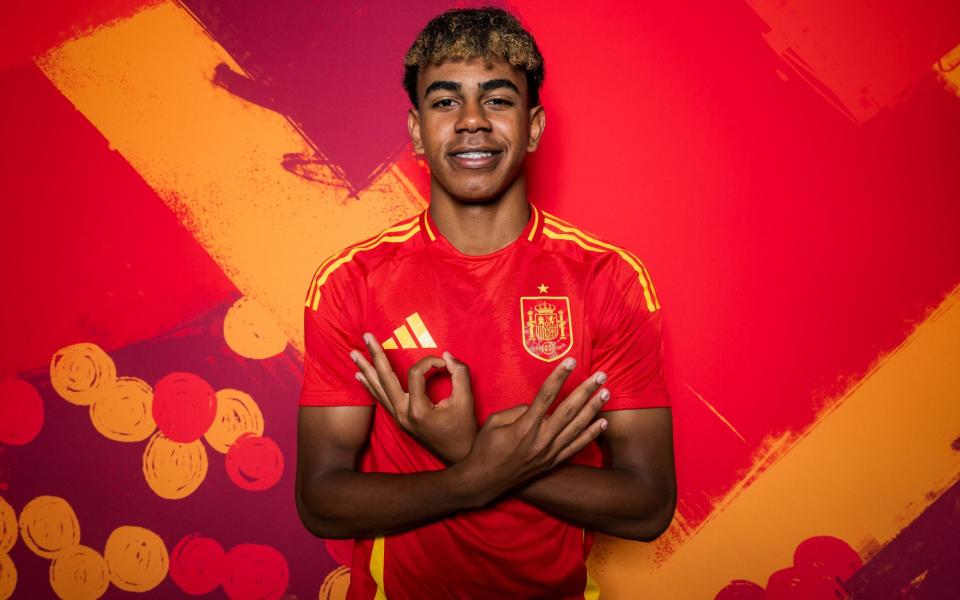

In this football-obsessed neighbourhood, expectations were high before the final against England and even on a baking-hot July morning, scores of children were kicking balls around.
Once, they might all have dreamed of being Messi. Now they all think they could really be Yamal.
At Club de Futbol Rocafonda, children were taking part in a summer football school.
“I am a big fan of Lamine. My brother has seen him a few times around here. He is very friendly. I think if I play hard enough, I could be like him,” says 11-year-old Ibrahim Jawara Nimaga, who grew up in Rocafonda but whose family are from Gambia.
His team-mates made the three, zero, four symbol that has become a rallying cry for this neighbourhood. This part of Catalonia is a world away from the glamour of Barcelona’s beaches, about 45 minutes by car to the south.
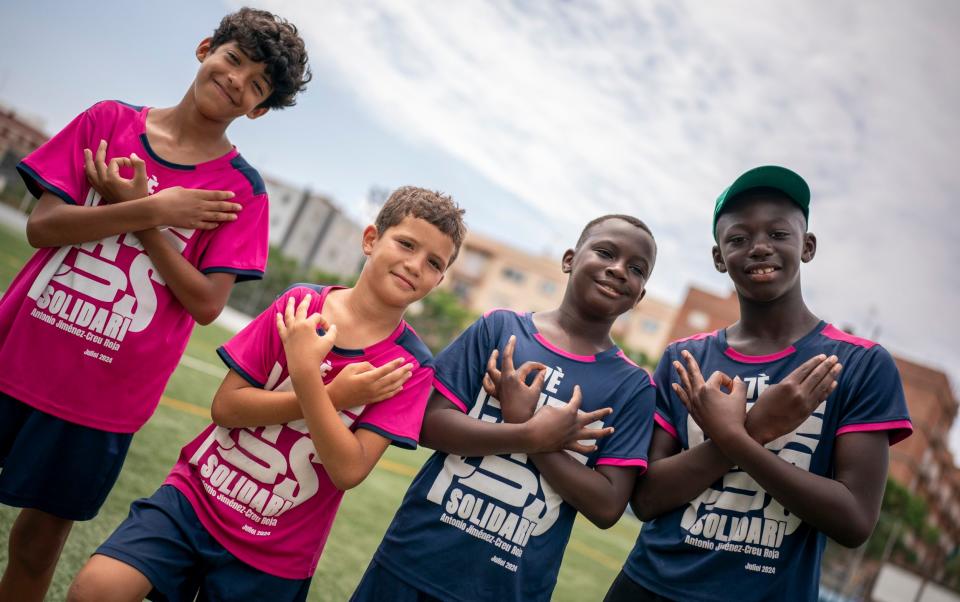

Mataró, in which Rocafonda is a grey, underdeveloped neighbourhood, is an industrial city way off the tourist trail. The local Seat car factory is the main source of employment but many of the migrants who arrive in Rocafonda to try to seek out a new life do not work there.
About half of the 11,000 people who live in this corner of Mataró are classed as “at risk of poverty” by the Spanish National Statistics Institute.
Nevertheless, football – no, Yamal – gives people hope here. Opposite the tiny apartment where the Spain and Barça star grew up, eight-year-old Ahron was wearing a Messi shirt.
“I am a Barça fan. I would love to be like Lamine,” he says, eyes wide open with the hope of youth.
On the streets, kids wear shirts of all kinds of teams, from PSG, Morocco, FC Barcelona, Manchester City and Real Madrid. Spain shirts, some emblazoned with the name Lamine, hang from some balconies.
Yamal’s uncle runs a bakery called the Panaderia Arabica, with a mural of his nephew on the front. On the front there are three flags – Spain, Morocco, and Equatorial Guinea, to represent all parts of his family.
‘Lamine has been a positive message to everyone’
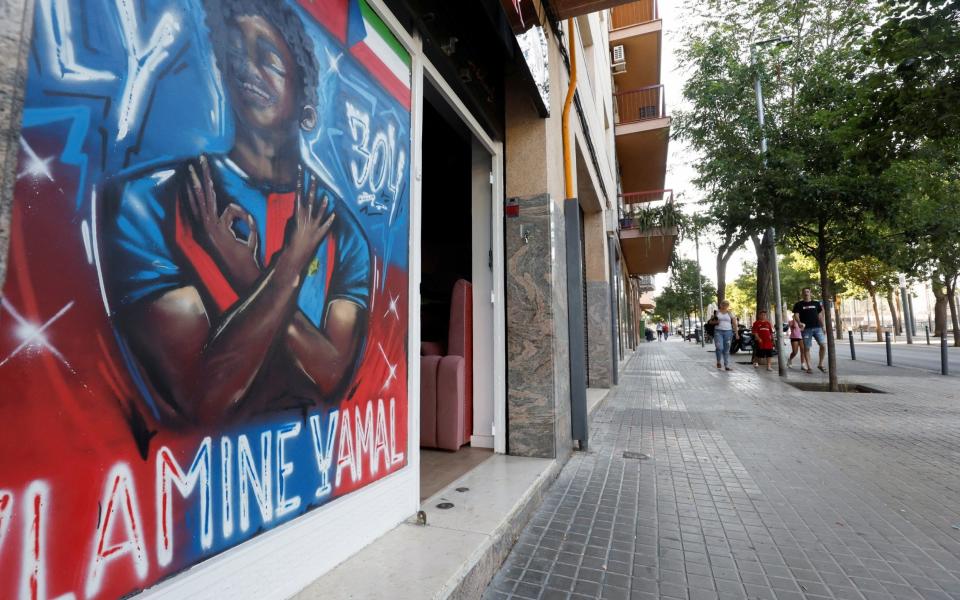

Rocío Escandell, president of the Association of Rocafonda Neighbours, has known Yamal and his family all his life.
“I have seen him play in the streets around here and in the local football club. He was always good but also a good kid, you know,” she says.
“This is a good neighbourhood whatever people say. It is a working-class area and people want to get along. Lamine has been a positive message to everyone.”
His virtuoso skill on the pitch is a mystery, says Escandell, as his father was never a player or especially into the game.
Yamal’s own story starts 30 years ago when his maternal grandmother Fatima arrived from Morocco and took up a job in an old people’s residence.
She worked hard enough to bring seven children over to Spain where, like many Moroccan families, they settled. The family never spoke of the player’s grandfather, friends say, so she managed all on her own.
Yamal’s mother, Sheila Ebana is from Equatorial Guinea, a former Spanish colony in western Africa. The player’s parents divorced and when she moved away from Rocafonda, she entered him in Club de Futbol La Torretta in Granollers, a nearby town.
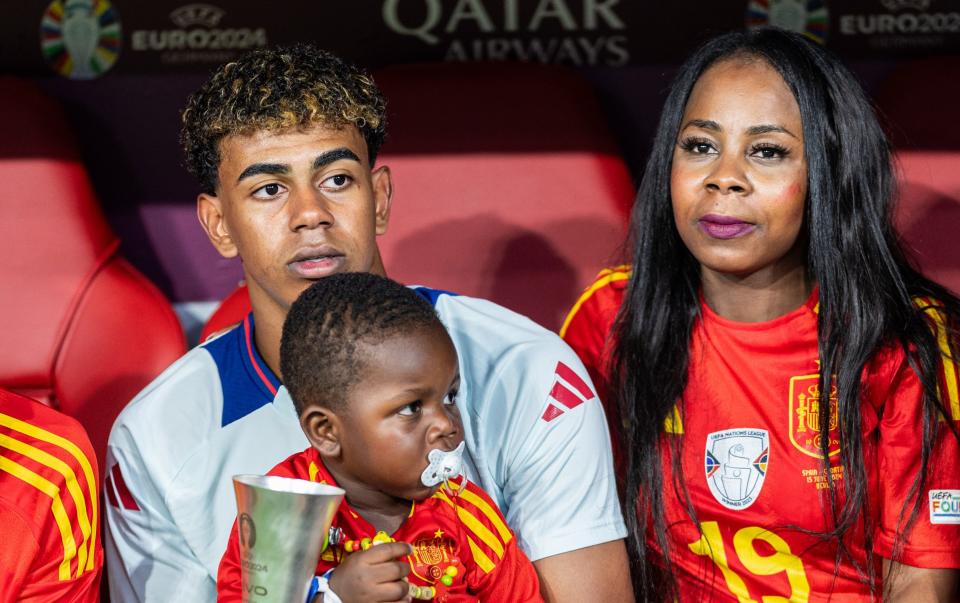

Yamal started playing for CF La Torretta, a small club with 200 players, when he was only five.
“He came here when he was five years old and stayed until he was seven years old. Then Barça came for him,” Jordi Vizcaino, president of CF La Torretta, says.
“It makes my hair stand on end to see Yamal playing for Spain and for Barça. I am just so proud of him. He was so young when he came here and he is still so young.”
On the window of the club, there is a picture advertising a tournament named in honour of Yamal. It shows a photograph of the player when he arrived as a small child and another contemporary one.
On the pitch, boys were kicking balls around, perhaps dreaming they too could one day become the new Yamal.



